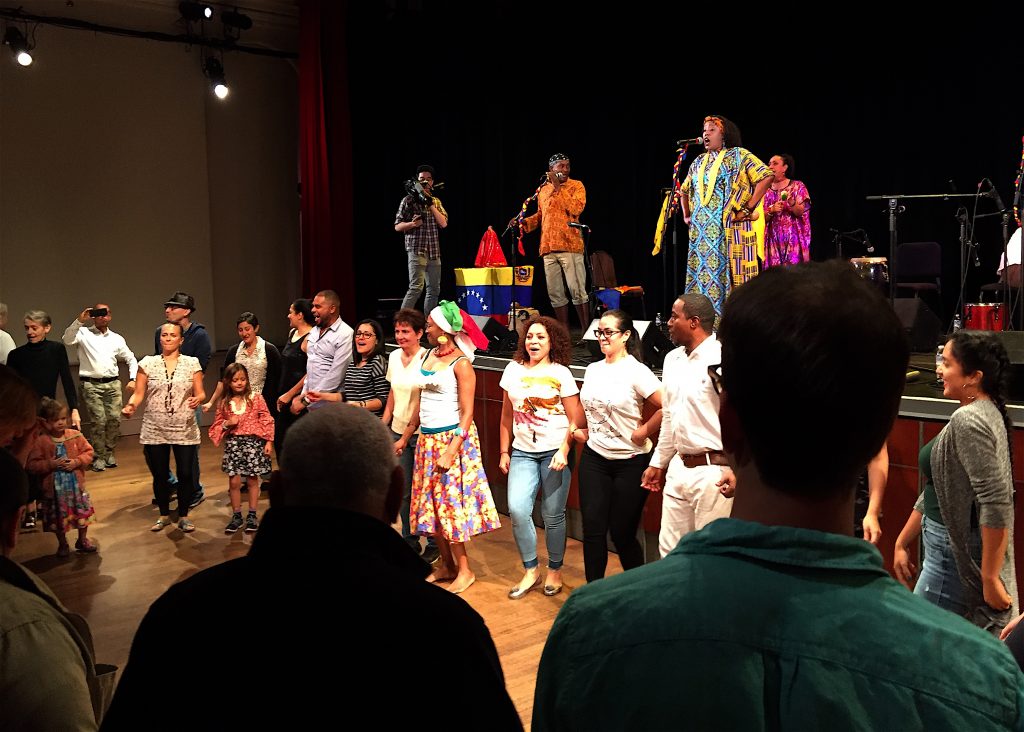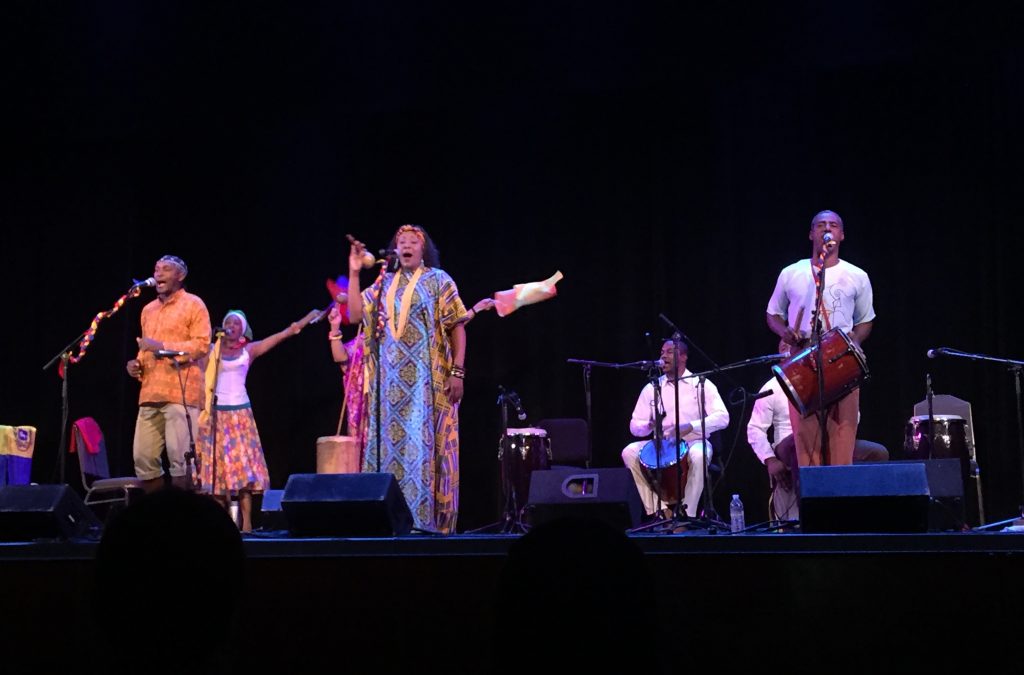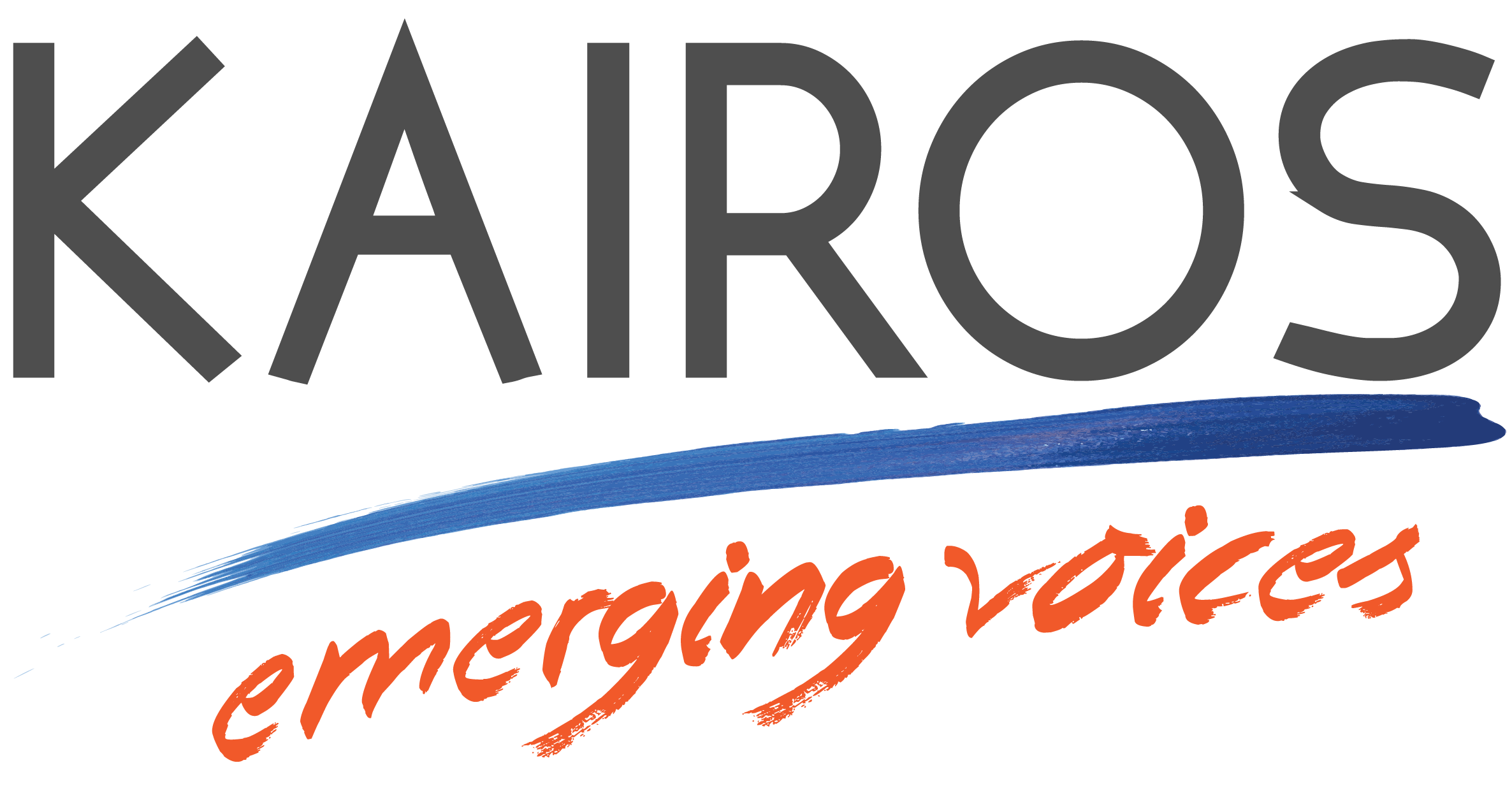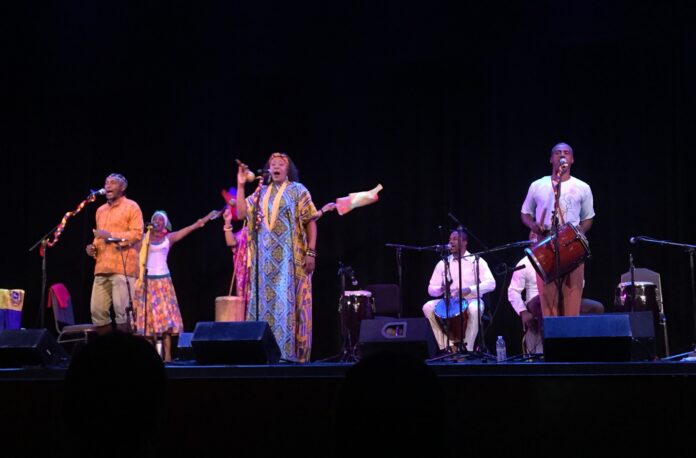They’ve gathered to dance – and to reminisce.

You’re Not Reading About
(5:45 minutes)
“This music makes me cry a lot, because it reminds me of home,” said Adrien Muñoz, who had been living in New York City for just 10 months.
It was a crisp autumn night, and more than 100 people were enjoying an Afro-Venezuelan concert in the town hall of Flushing, Queens. Fleeing their collapsing country, more Venezuelans are turning up in metropolitan New York and New Jersey.
Census data counted only 14,500 Venezuelans living in New York state, and about 7,000 in New Jersey, as of 2010, but their numbers are believed to be rising. Some 18,000 Venezuelans applied for political asylum in the United States in 2016 – more than from any other country. Social media sites devoted to Venezuelan expats are growing; Venezuelan products are popping up in Latin supermarkets; and several new Venezuelan restaurants have opened.
Concerts that feature the music of home make Muñoz feel better.
“I came here to recharge my batteries,” he said.
The audience is listening to singer Betsayda Machado perform traditional Venezuelan parranda, or party music.

Machado’s booming voice fills the modest auditorium. Considered an icon of Afro-Venezuelan music, she recognizes that Venezuelans seeking a connection to home find her music especially important.
Many of her songs are about the realities of Venezuela’s political and economic crisis. She said she hopes she can help explain those problems through music.
Dancing and Dreaming
Listeners crowded into an open space in front of the five banging drummers, chapman stick players, shaking maracas and Machado’s microphone to dance. Members of Machado’s band gave a dance lesson to the uninitiated, but most on the dance floor already knew the moves.
“Her voice, when she doesn’t have a microphone, is huge,” Muñoz said. “It can move your feelings.”
“Every time we used to have a party and get together [with our families], music was always involved,” Caracas native Johanna Ortiz said. “And it’s funny, because that’s the way I learned how to dance.”
Ortiz arrived in the United States more than 20 years ago, when she was 13. She came to tonight’s show with her friend Gabriella Costa, a fellow caraqueña.
They participate in events like these in order to celebrate their heritage, Costa said.
The region’s Venezuelan’s community has been growing lately because of the “political situation,” Costa added — a benign way of referring to President Nicolas Maduro’s attempts to consolidate power. There are nearly daily protests in Venezuela’s major cities, and much of the country is experiencing severe food, energy and medical supply shortages.
Many Venezuelans at the event spoke in similarly vague terms about “the crisis” back home. Several said they’d voted in an anti-Maduro referendum in the summer of 2017, in symbolic protest against the government’s plan to replace Congress with a new Constituent Assembly with the power to rewrite the Constitution. Though 7 million people expressed opposition in the referendum, Maduro established the new National Assembly anyway.

Katherine Rengifo and her wife Ana Fernandez said they were proud that they’d stayed engaged in Venezuelan politics after leaving Caracas for Brooklyn, about 18 months ago. They participate regularly in anti-government protests and demonstrations.
“Everything gets so bad there, (but) you grow as a person, because of everything you’ve had to leave, and everything you see (later) of other people and other cultures,” Fernandez said. She said she’d eventually like to return home, under a new president, and to help her country recover.
Rengifo and Fernandez said their struggles in Caracas had left them emotionally and physically scarred.
“You see this?” Fernandez asked, pulling her turtleneck sweater down to reveal a 3-inch scar across the bottom of her neck. “I got this in a protest in Venezuela.”
“The police came (to the protest), the police and the Army, and they started shooting and sending tear gas,” Fernandez recalled. “So I got the tear gas on my back when I was running, and they closed the doors of the subway, and people started pushing, and after that I had to get a surgery for (the cut).”
“And I got a broken nose, although now it’s beautiful,” Rengifo said.
They felt lucky to escape Venezuela with their lives.
What Muñoz misses most is the land: the mountains, rivers and sea, magical and mystical in a way he feels is captured in Machado’s voice.
“In Venezuela, we can’t live in peace because of basic things,” he said. “Something basic, like food: your day is for looking for what you’re going to eat for that day. And then the next day is the same. You wake up in the morning, [and wonder] ‘What am I going to eat today? What am I going to eat today?’”
“It’s sad. Children die,” he added, with downcast eyes.
Most Venezuelans would probably prefer to live in Venezuela if they could, he said.
“If you ask any immigrant if they want to be here, they’ll say no,” Muñoz argued. “Every song that (Machado) sings here is about that.”


